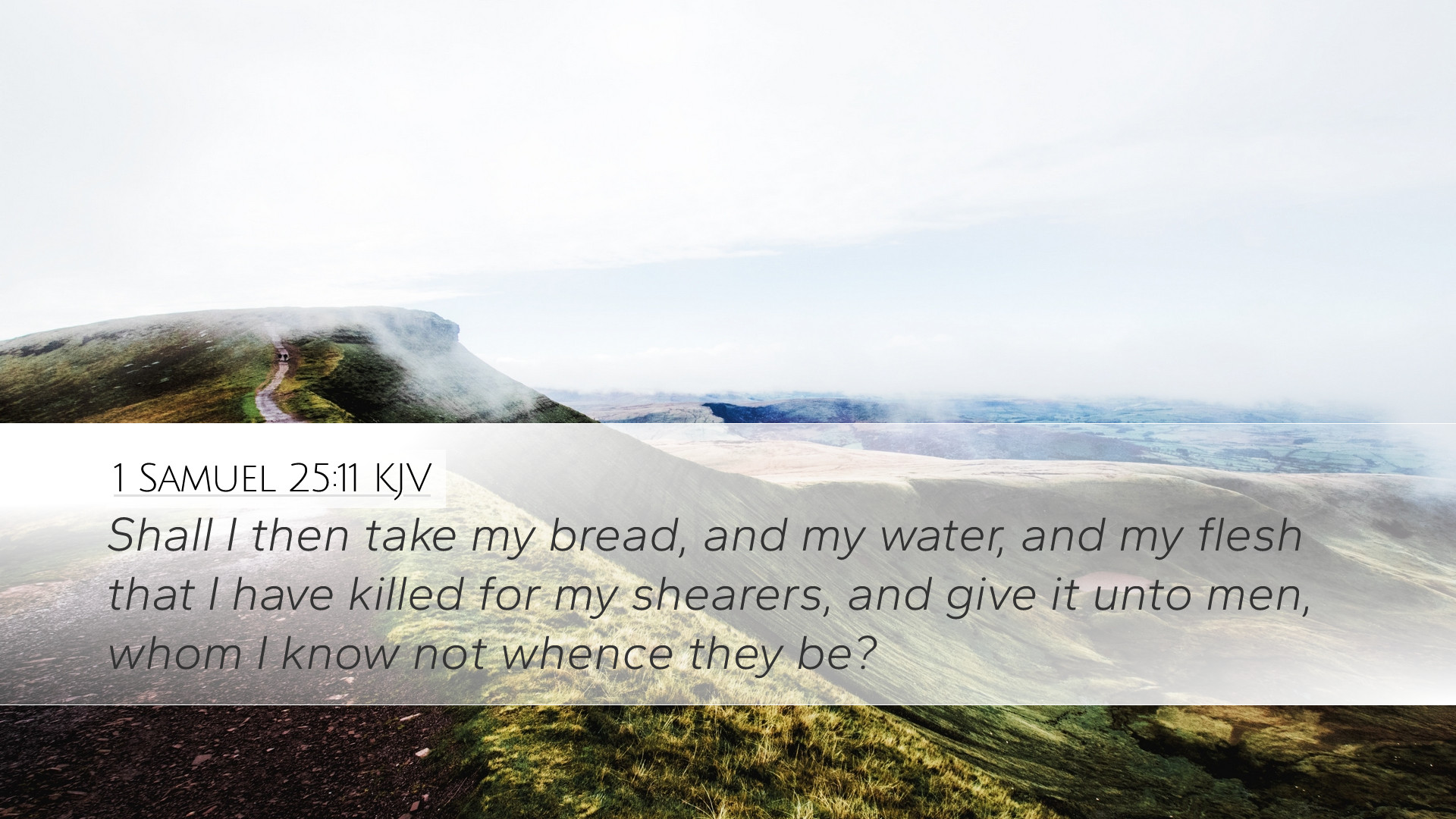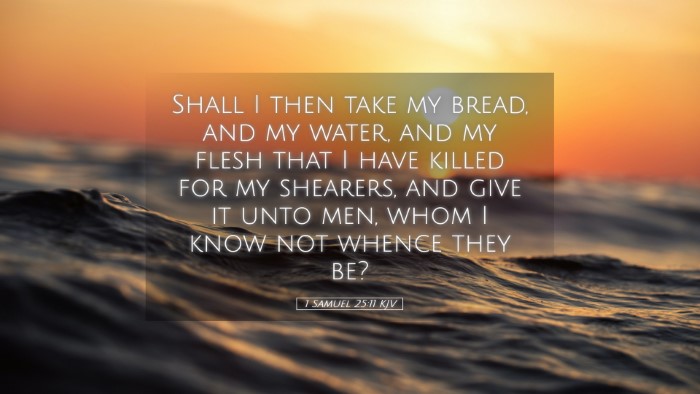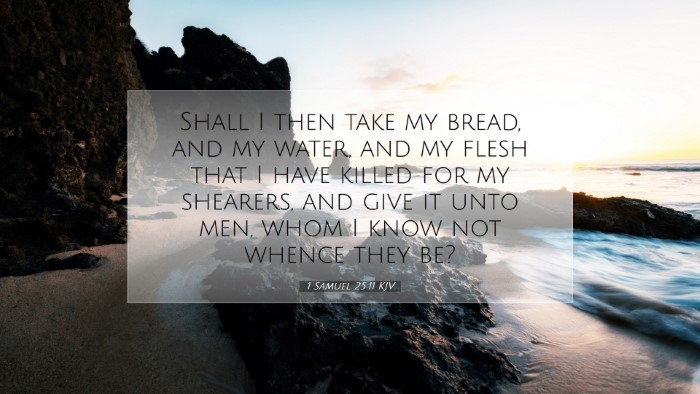Commentary on 1 Samuel 25:11
Verse Context: 1 Samuel 25:11 states, “Shall I then take my bread, and my water, and my flesh that I have killed for my shearers, and give it unto men, whom I know not whence they be?” This verse comes during a critical moment in David's life as he seeks assistance from Nabal, a wealthy but harsh man. Nabal's refusal reveals much about human nature and the principles of generosity and hospitality.
Insights from Public Domain Commentaries
1. Matthew Henry's Commentary
Matthew Henry emphasizes the stark contrast between David's noble character and Nabal's foolishness. He notes that David's request was not out of mere need but a testament to his innate sense of justice and community. David sent his servants to ask for provisions in light of his protection of Nabal's shepherds. Nabal’s disdainful refusal illustrates a broader theme of ingratitude and selfishness, both frequently encountered in human relationships. Henry elaborates that Nabal's name signifies "fool" (see 1 Samuel 25:25), which reflects his behavior and ultimate folly in disregarding David, a future king and God's chosen leader.
2. Albert Barnes' Notes on the Bible
Albert Barnes contextualizes this verse within the narrative of David's struggles against Saul and his quest for sustenance for his men. He highlights that David did not demand hospitality but rather sought what was a customary practice in those times. Barnes interprets Nabal's refusal as a representation of the ungratefulness that often flourishes in prosperity. He draws attention to the attachment of personal ownership and how it blinds individuals from recognizing the needs of others. Nabal’s emphasis on “my bread” and “my water” indicates a possessive attitude that denies communal sharing, even in times of need.
3. Adam Clarke's Commentary
Adam Clarke offers a theological reflection on the deeper implications of Nabal's response. He underscores that Nabal's skepticism towards David reflects a lack of faith and understanding of divine providence. Clarke indicates that Nabal's unwillingness to share his resources not only speaks to his character but also points to a broader disconnection from God’s expectations of generosity. Clarke reminds readers of the scriptural call to love one’s neighbor and demonstrate kindness, especially to those in need. He suggests that by hoarding one's blessings, one distances oneself from the spirit of community that God commands.
Applications and Reflections
- Hospitality as a Christian Principle: The refusal of Nabal serves as a cautionary tale against failing to recognize our obligations to others. Hospitality is a central theme throughout Scripture, and believers are called to share their resources generously.
- Understanding Divine Providence: David's situation reminds us that God can provide in unexpected ways, and sometimes, the generous spirit in others may act as His provision. Nabal's shortsightedness prevents him from perceiving the good that could come from assisting David.
- The Nature of True Generosity: Nabal represents a heart hardened by wealth. It challenges us to examine our attitudes toward our possessions and consider whether we allow materialism to overshadow our call to serve and support those who are less fortunate.
- Leadership Lessons: For pastors and leaders, David's approach in seeking help teaches the value of humility and respect in leadership. David's request was made with honor, contrasting sharply with how he is treated by Nabal. Real leadership involves seeking the good of others and being willing to ask for help.
Conclusion
The interaction in 1 Samuel 25:11 encapsulates fundamental lessons on human character, generosity, and the divine expectation of community support. The insights from Matthew Henry, Albert Barnes, and Adam Clarke not only enhance our understanding of the text but also challenge us to reflect on our own attitudes towards hospitality and generosity. It serves as a reminder that in our abundance, we should strive to uplift those in need, honoring God's call to love and serve our neighbors.


